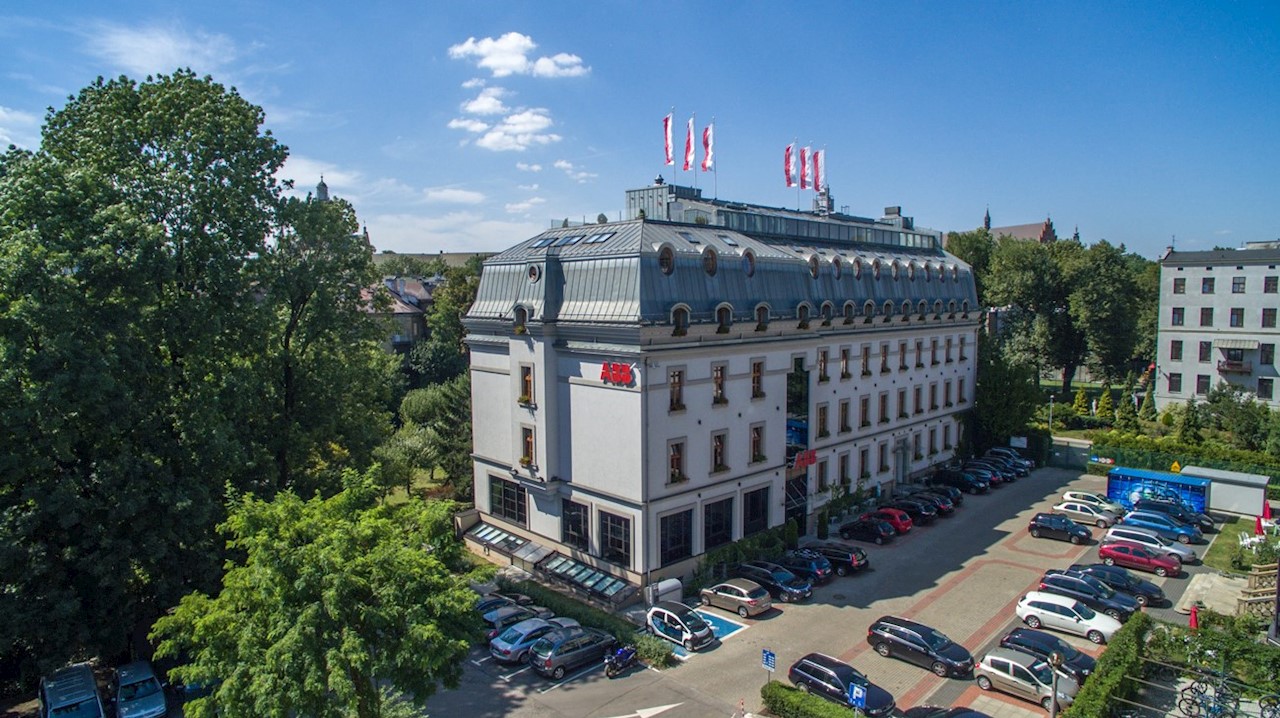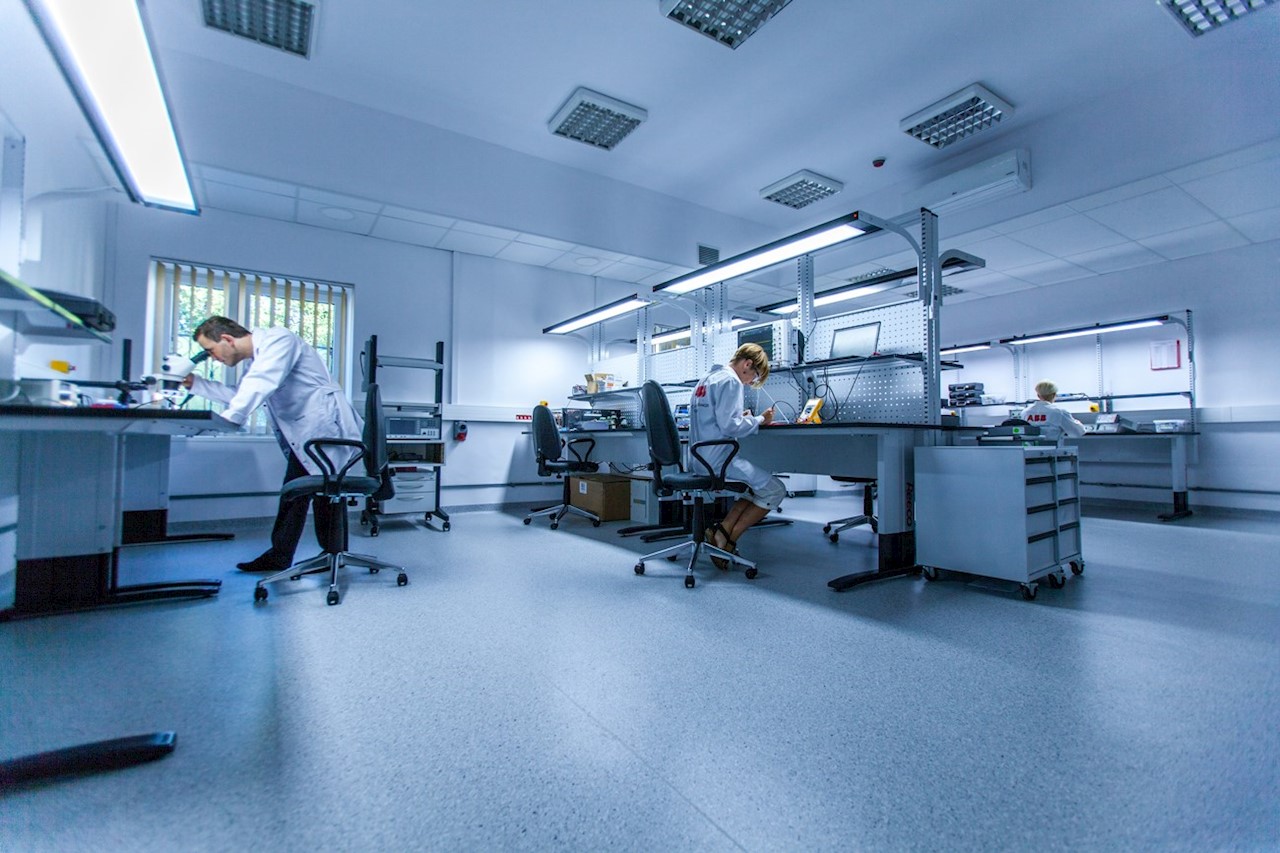As policy makers from 184 countries meet for COP24 this month in Katowice, Poland, to discuss specific ways to reduce greenhouse gas emissions, the goals include curbing energy use without crippling their economies.
As it happens, one such innovation is already catching on around the world. And it was invented only a short distance east, in Krakow, Poland.
There, at the ABB Corporate Research Center, scientists and engineers devised a patented technique for recovering the energy that would otherwise be lost every time an electric tram, train or subway car brakes to a stop. The energy, captured and converted back into electric power, has cut the electricity consumed by light rail and subway systems by up to 30 percent where the system has been adopted.

Pioneering technology leader ABB has already installed this technology – the Enviline Energy Recuperation System – on trams and subway trains in cities including Warsaw, Istanbul, Philadelphia and Toronto.
"We have an extraordinarily creative set of scientists, engineers and researchers here in Krakow, and the solutions they come up with are capable of vastly reducing the world’s carbon footprint while still growing the economy and saving jobs,” said Marek Florkowski, the head of ABB’s Krakow research center.
The Krakow research center is one of seven that ABB operates in countries in Europe, North America and Asia. The engineers and scientists at these facilities collaborate on research and development that has led to many of ABB’s new technologies in power management and industrial automation.
The Krakow ABB Corporate Research Center, founded in 1997, and housed in a 19th-Century neo-Renaissance palace, has 27 fully equipped modern laboratories where ABB engineers and scientists have achieved numerous breakthroughs in electronics; algorithms to monitor and maintain electrical power grids; miniaturized circuits for industrial applications; sensors and diagnostic tools, and many other technologies.
The work is not restricted to electronics and industrial automation. On the center’s roof, a mini-apiary that houses more than 50,000 honey bees is continually monitored by video and other sensing technologies. Why? Because the Krakow center’s specialties include the development of computer algorithms to interpret and analyze large data sets drawn from different types of sensors found in ABB-produced equipment. It turns out that an active colony of bees excels at generating vast amounts of raw data.
With thousands of bees flying in and out of the hive at any one time, the scientists try to find methods for counting them, taking into account their speed, tiny size and the visual background.
Another algorithm predicts harvests. By tracking the hive’s weight, internal humidity and temperature and correlating these with prevailing weather conditions, the algorithm attempts to predict future honey yields. The rewards are many, including excellent honey displayed in jars with the ABB logo.
A Regional Technopolis
Krakow, whose scientific heritage traces to its roots as a medieval university town, has emerged as one of the leading technology centers in Central Europe. The city’s long history as a center of Poland’s scientific and intellectual life - its universities have nearly a quarter-million students - made it a logical choice when ABB expanded.
These days, a key challenge for the engineers, scientists and visionaries at the ABB Krakow research center is devising technologies to support sustainable economic growth. The nearby COP24 meeting serves as a reminder that such efforts are crucial if the world is to meet the ambitious goals set by the Paris climate accords to vastly reduce global carbon emissions by 2050.

‘‘As one of the world’s largest engineering firms, we have a distinctive opportunity and responsibility to help our customers cut their greenhouse gas emissions to mitigate climate change and ensure our planet remains a sustainable place to live,” said John Revess, ABB’s global head of sustainability.
When the Krakow center’s researchers set to work on making urban railways more energy efficient, they faced a tricky engineering challenge: how to capture the vast amount of excess energy generated by a braking rail car without disrupting the steady flow of power on which electric rail lines depend. In the past, a small portion of the recovered energy was used to power onboard loads, like lights or air conditioning, while the remainder was sent into the system to power nearby trams, a process called natural receptivity. Any power that couldn’t be used was dissipated in resistors, either on the train itself or at a wayside power station.
The ABB researchers and engineers in Krakow took a new approach, devising a way to capture more than 95 percent of that kinetic braking energy as electrical power, store it nearby, and shoot it back to the tram or train as its accelerates out of the station. All this is done without wasting the energy or disrupting the power flow.
‘‘The amount of energy required to accelerate a multi-ton tram to even modest velocities is huge, so any increase in energy efficiency will have significant cost benefits,” Florkowski said. “And recovering braking energy is the single most effective step that urban rail systems can use to improve their energy efficiency.”
ABB’s system also reduces the train’s weight, and eliminates the buildup of heat in tunnels and underground stations caused by braking. In fact, a combination of traction and energy recovery technologies developed by ABB and applied to new tram cars on Istanbul’s 33.8-kilometer streetcar system has cut electricity usage there by nearly one-third, reducing generating needs and cutting greenhouse gas emissions even more.
‘‘For an engineer, there’s really no greater thrill than knowing that the work you are doing will not only have a visible effect on the world today,’’ Florkowski said, “but will help preserve the world for your children.